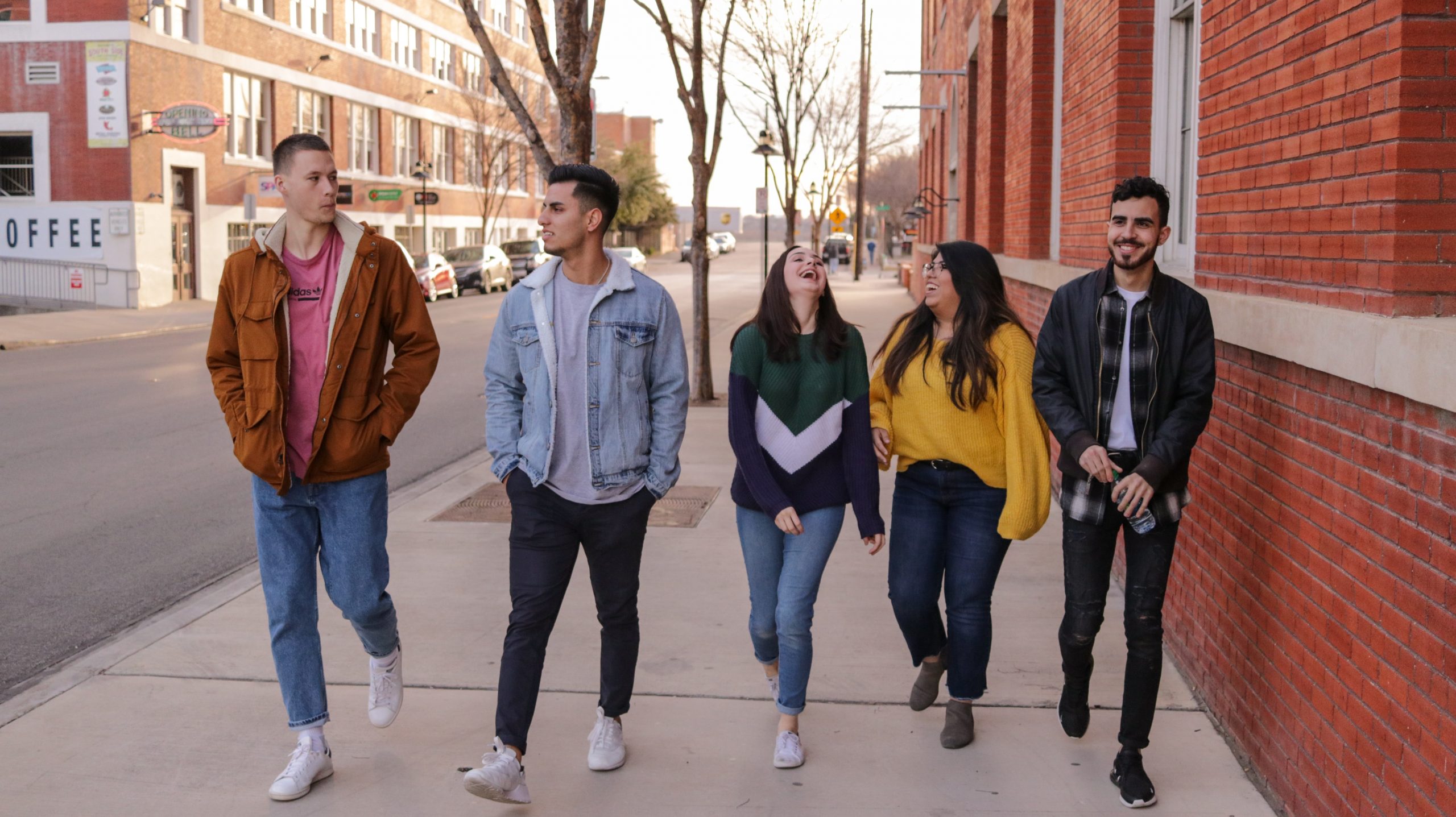
Students are raring to get going, with 94% excited to start working despite the pandemic. Although pessimism over finding work is high, determination to find the right role is higher, with 42% confident that they’ll find the job they wanted. Aside from the pandemic, our study reveals what young job seekers really want in terms of communication and what’s important to them when looking at an organisation and the recruitment process.
Graduating from university or further education and entering the job market has always been daunting and difficult. In 2020 there are a whole host of new challenges being faced by students suddenly trying to find jobs across sectors that have made job cuts or seen downturns. In many instances, students are suddenly up against large numbers of experienced workers, all applying for a handful of available jobs.
Despite this, students and graduates are going about the task of finding their first post-graduate jobs with commitment and enthusiasm. We’ve teamed up with the Institute of Student Employers (ISE) and chatted to 3,000 students about what they want to find from employers, their attitudes to COVID-19 and how they feel about their career prospects.
With 74% of respondents saying they strongly focused on their career path, you may find some results that surprise in our full report, which you can download here. For a top-level look at the key takeaways, we’ve put together a summary below.
The pandemic has lead to more than half thinking twice their career plans
In the six months since the pandemic started, 57% of students who responded said that their ideas about their career have changed since the start of the pandemic. Despite these concerns around what the pandemic has done for their future careers though, for some, there’s a sense of optimism for what comes next.
A full 42% of young job seekers were confident that they’d find just the job they wanted quickly after leaving education and 74% are still strongly focused on their career paths. For many though, there is a big worry that these unique circumstances could stand in the way of their first rung on a career ladder, and are re-thinking what their next steps should be.
Fair treatment most important for young job seekers, while many want to ‘have it all’
When we asked students and young job seekers what was important to them when they were choosing a job or employer, they predominantly said they wanted to find organisations that would let them ‘have it all’. But what does that mean?
Having it all simply means an organisation that can provide a clear career path, work/life balance, interesting work, decent pay and a strong stance on ethical standards. When looking at jobs though, fair treatment came out on top, with 98% of respondents saying that’s the main thing they want from an organisation, while 73% stated that working with likeminded people was important to them.
All this combines to show that students and young job seekers simply want a fair chance and to find organisations that can offer security, clear progression opportunities and a work/life balance that won’t see them too snowed under.
Email & LinkedIn lead the way in terms of communication
While young job seekers are happy to keep track of the latest updates from a company across social media and blogs, for direct communication they prefer something a little more formal. Just 37% said they wanted employers to communicate through blogs, 36% through Instagram, 33% through Twitter and 28% through Facebook.
95% said they’d happily be communicated to through email though, and 90% were happy with LinkedIn. This highlights that the channels you choose to communicate with prospective candidates is key, and could turn them off your organisation if you’re not careful. Keep things formal, and avoid encroaching on what candidates may feel are more personal platforms.
Candidates keen to understand an organisation’s recruitment process, training and community work
It’s all well and good communicating on the right platforms, but what do young job seekers actually want to hear about? While they may be picky about how it’s communicated, it’s safe to say they are hungry for information.
The key things students and young job seekers want to hear about are the recruitment process, what organisations are looking for in their candidates and what they can get out of the organisation itself. They want them to be open about career prospects, training and social opportunities, along with testimonials from existing employees.
One other thing that’s worth knowing is that now, more than ever, students and younger job seekers want to see what organisations are doing for charities and community work. Plus they want to know whether there are any volunteer opportunities available to help with these kinds of projects through the company.
While face-to-face recruitment is preferred, digital interviews weren’t far behind
While digital recruitment was slowly increasing before the pandemic, it’s safe to say that COVID-19 has accelerated the necessity for calls and video calls in the recruitment process. 91% of our respondents said they preferred a face-to-face approach, and 86% said they were comfortable with an online approach where it was necessary.
The main concern is that a third of students don’t trust employers to actually treat them fairly during the recruitment process. This highlights that students and younger job seekers are concerned about not being treated fairly when they’re looking for work and are worried about being taken advantage of or treated poorly.
Students and young job seekers are excited to start working and are happy to onboard from home
Despite the concerns about finding a job, students are proving to be excited about actually starting one when they get it. A whole 94% of students are excited to start working, and 93% are more than happy to start their role remotely if they have to do so. There’s an understanding that they may have to kickstart their new careers from home, and they are willing to get involved with virtual inductions and remote work if they need to.
Optimism is there and people are excited for a new challenge
So where are we currently at? The report highlights that in the face of potential downfalls, students and job seekers seem optimistic, and even excited, to get going in their new careers. They’re ready to take on the challenges posed by the pandemic and a shift to working remotely, even if it’s only temporary. The main worry is in finding opportunities, rather than being able to make the most of them once they have them.
Michele Trusolino, Co-Founder & CEO of Debut has commented on the research, saying:
“2020 has been challenging for employers, but even more so for the students. The normal stressors and anxieties of the transition from education to work have been magnified by the biggest disruption most have ever seen. It is against this backdrop that we felt hearing the voices of students was even more important than ever. We all work in the early careers space as we feel an affinity and responsibility for the next generation. It is now more important than ever that we help, motivate and inspire the leaders of tomorrow. We hope that this report will give you the tools to make 2020 a year where we help students achieve success despite all the challenges.”
Debut is the UK’s number one resource for graduate jobs, with over 40,000 open graduate roles, schemes and internships available online and on our app. To find out more about our graduate recruitment platform, and how to advertise your graduate opportunities with us visit our employers website.

